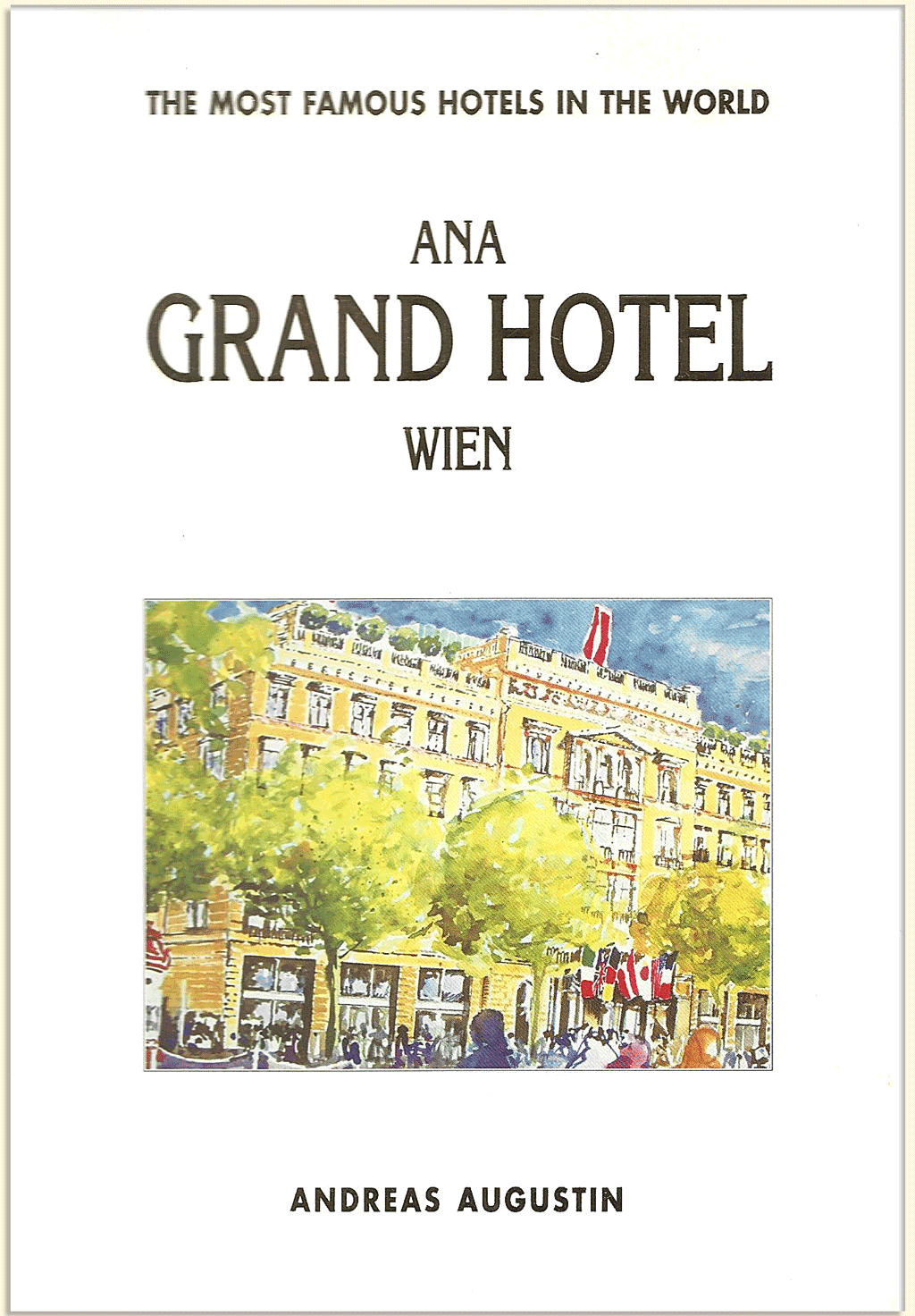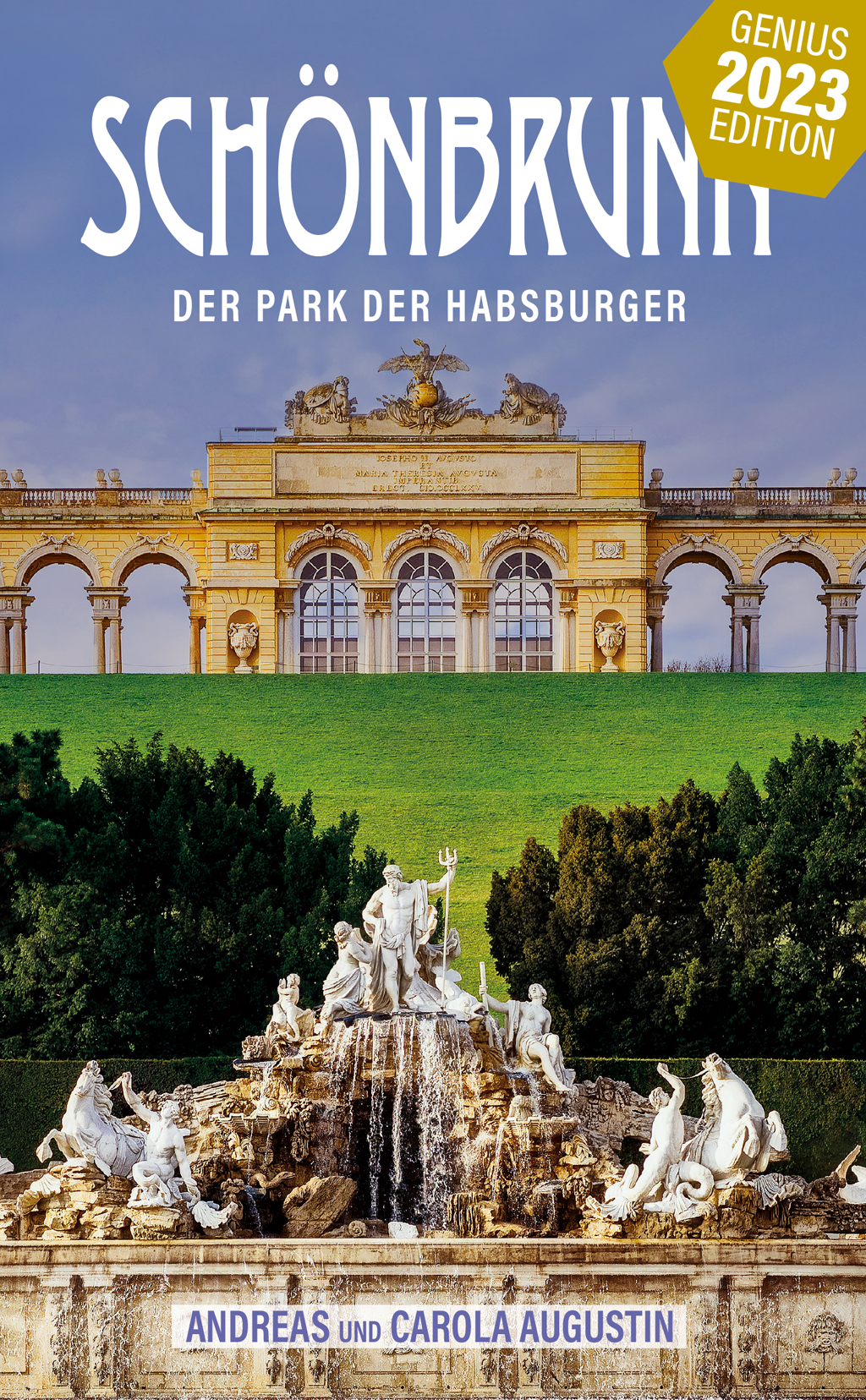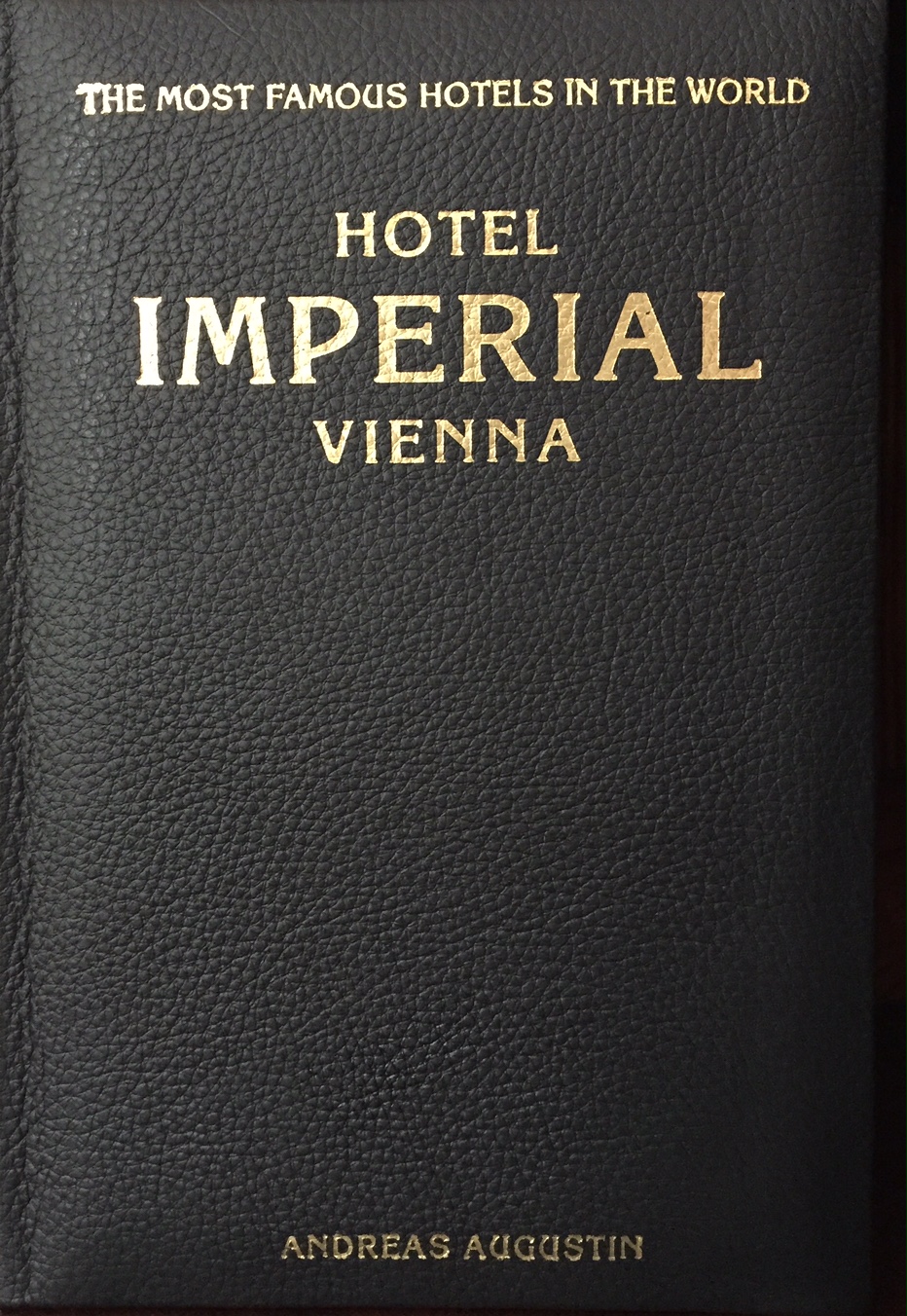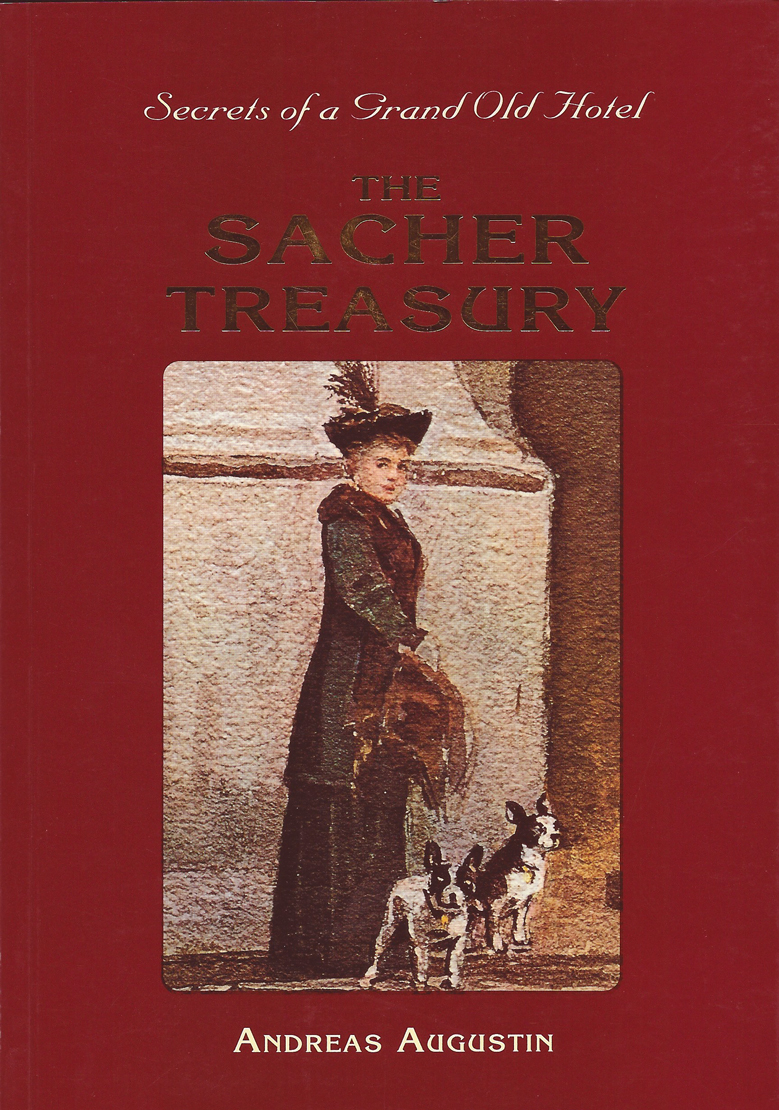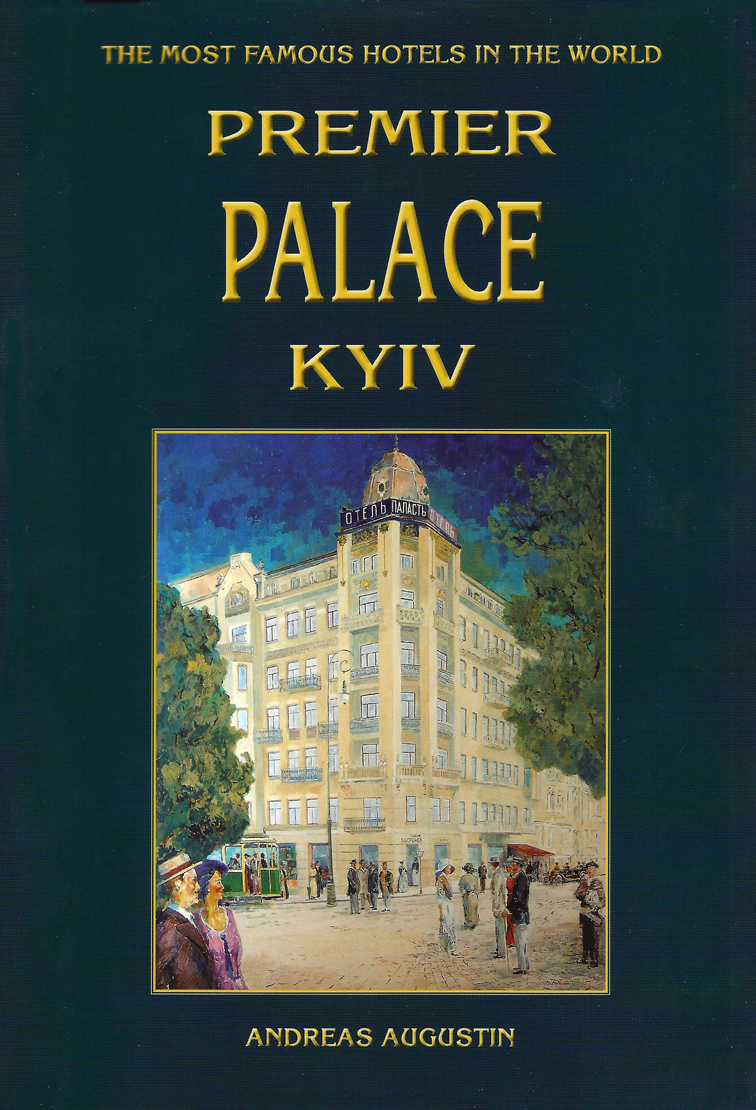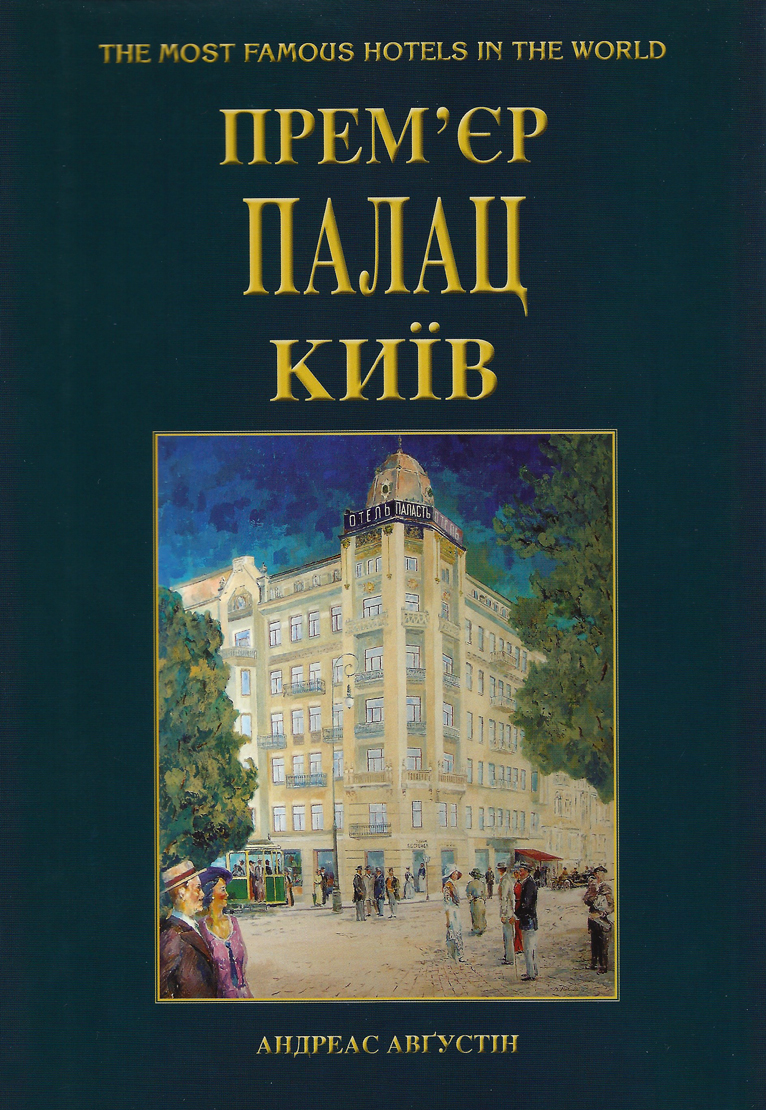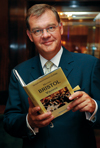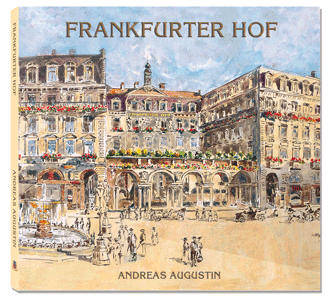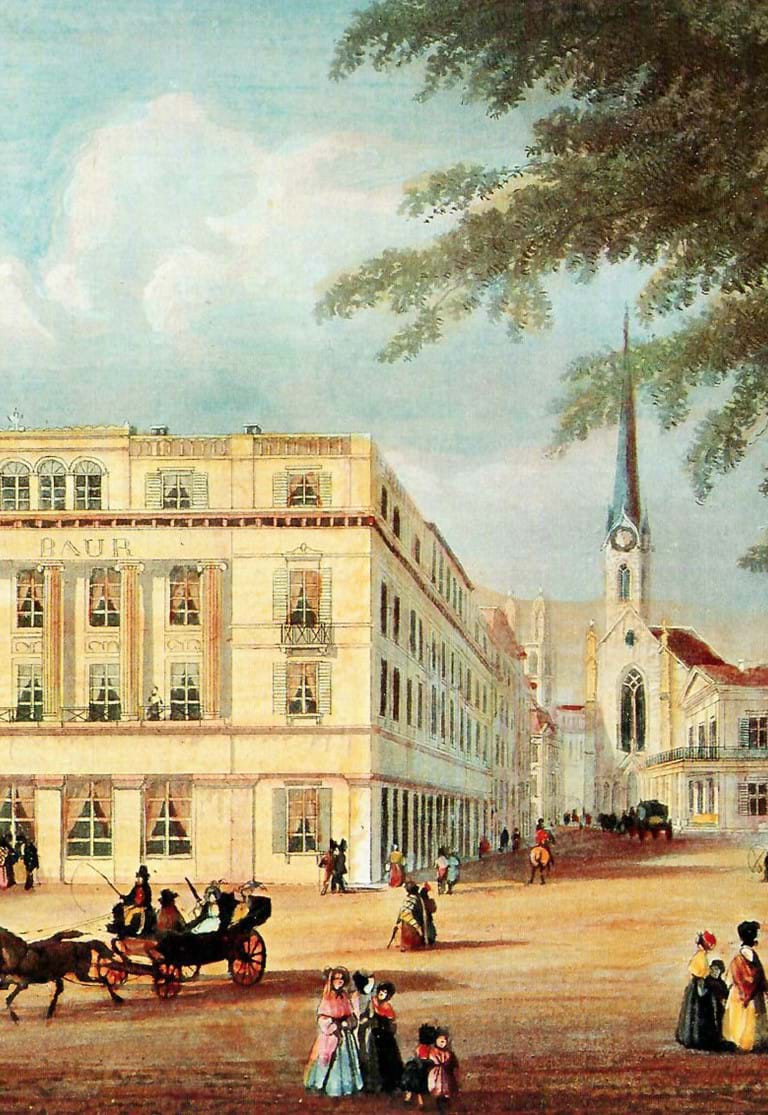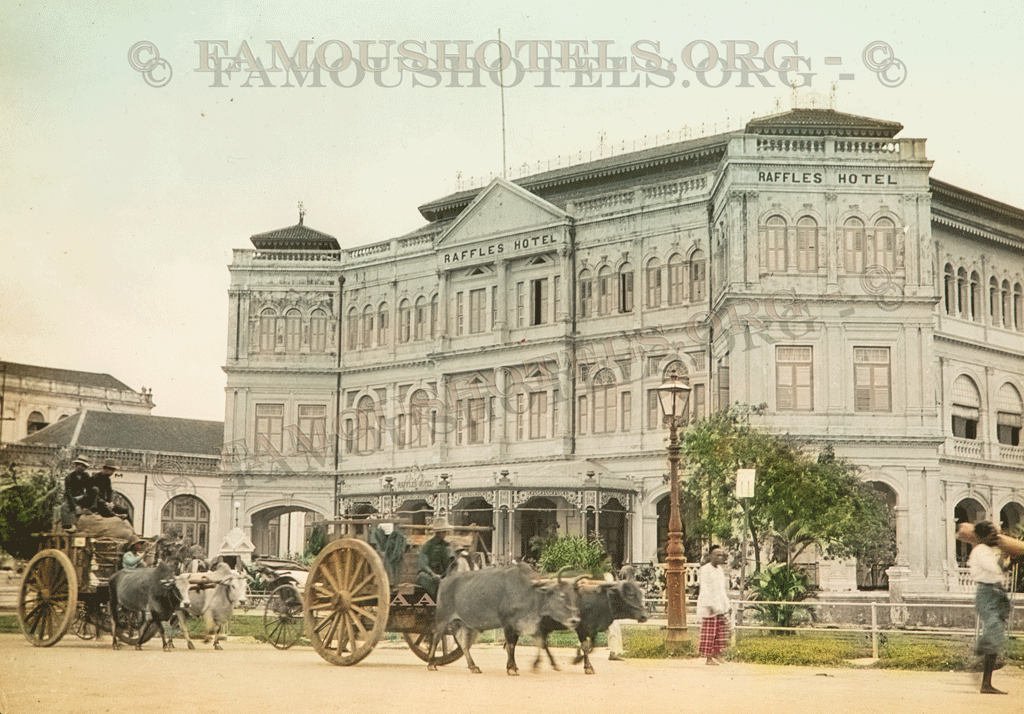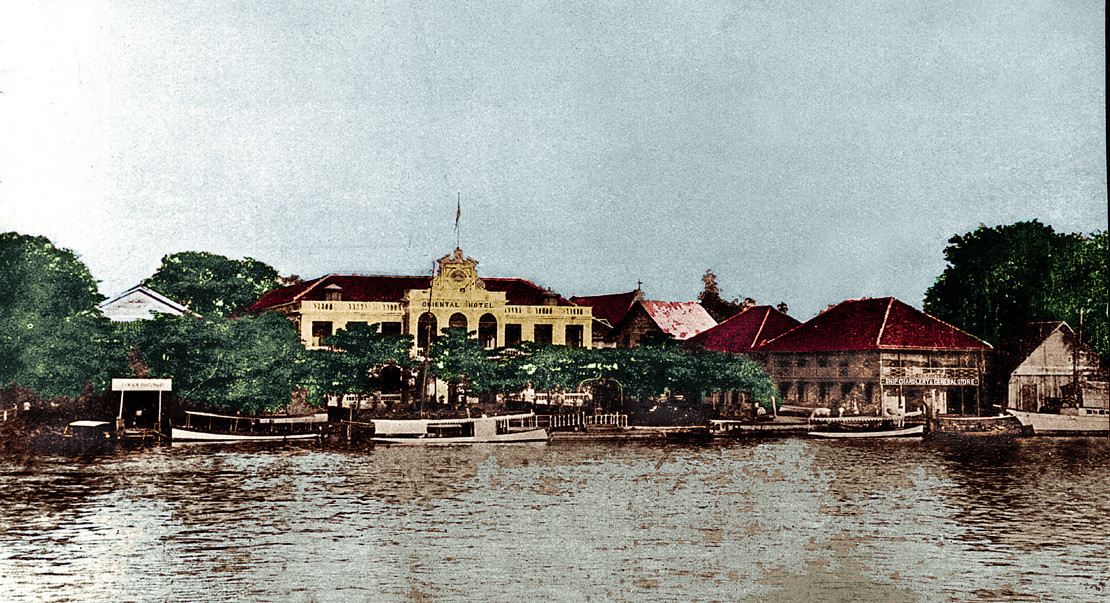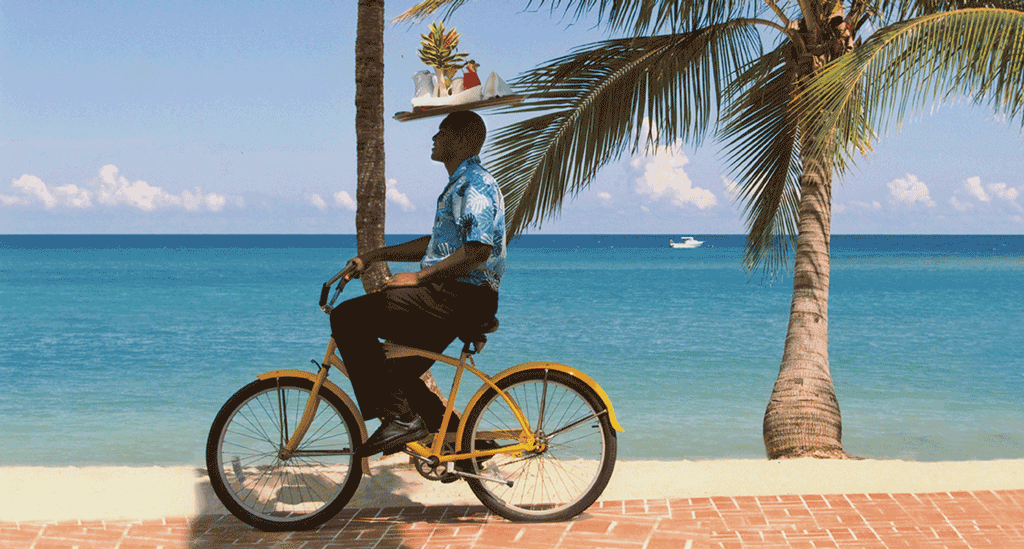Grand Hotel Lviv (English)
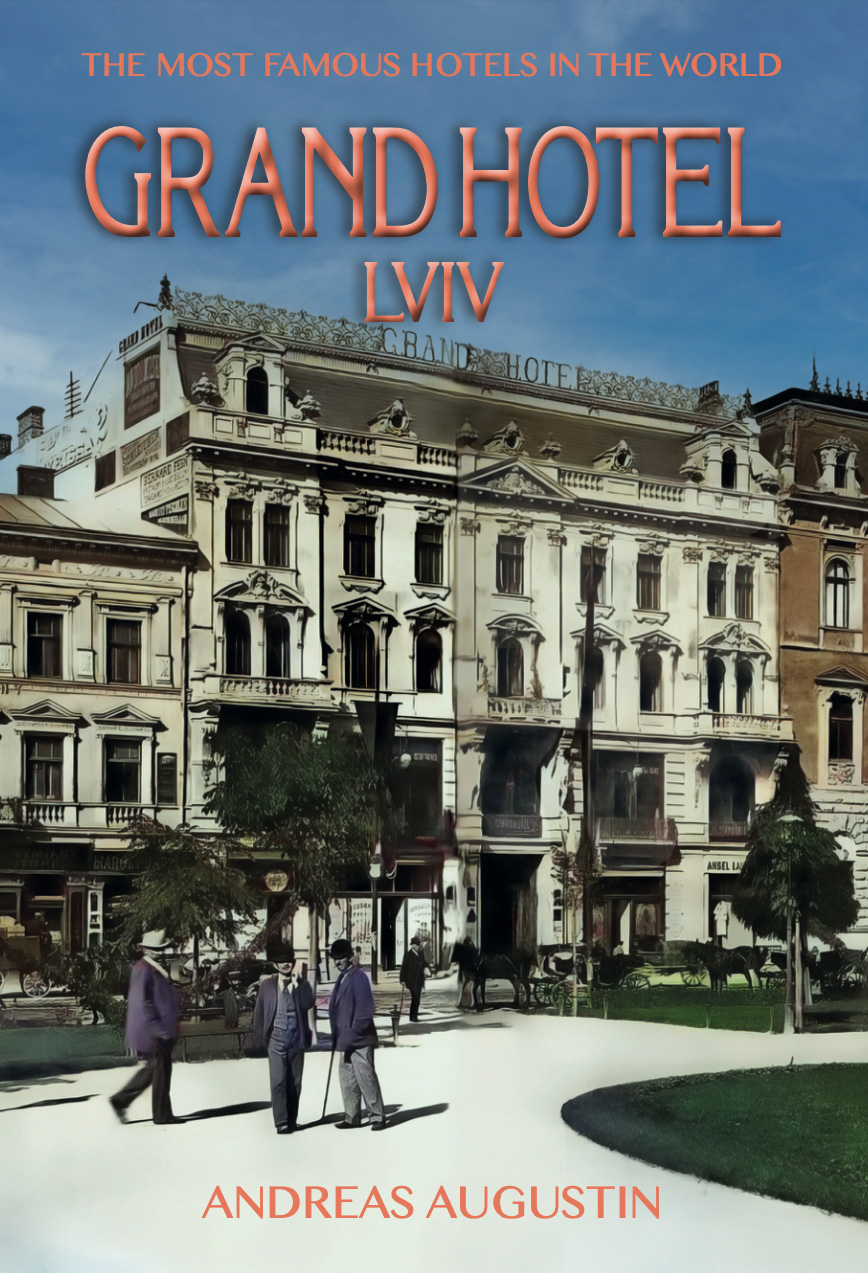
Author
Andreas Augustin
Pages
160
Photographs
Illustrations
over 190
Leather-bound edition
No
Binding
Hardcover (real cloth bound / gold stamping / dust jacket)
ISBN
978-3-900692-67-4
Size/Weight
155 x 225 mm, 888 g
Also available in
Ukrainian
Price: € 43.00
Add to cartResearching historic hotels in Eastern Europe presents a unique challenge. In these regions, communist influence shaped the hospitality industry differently from the West. The principle of equality left lasting marks, still noticeable among the older generation. The Western concept of genuine, warm service was long misunderstood. However, the younger generation is now passionate about adopting and delivering Western standards with enthusiasm. Let’s see how long it will take before we witness a "typical Ukrainian hospitality" emerging. This distinct, country-specific charm has become almost an alien concept in the age of globalization.
In western Ukraine, in the former Austro-Hungarian city of Lemberg, now Lviv, traces of imperial legacy abound. One standout is the Grand Hotel, located on the city’s most prestigious boulevard. This book invites you to explore its story—a journey that required meticulous research under challenging conditions, including the ongoing war.
Today’s Grand Hotel stands as a modern masterpiece. Renovated to world-class standards by its young owners, it has become a vibrant meeting place for the city’s stylish and affluent crowd. Trendy and conscious of design, the hotel reflects Lviv's new identity, where every corner boasts sleek Apple Stores and fashionable spots. The addition of a casino discreetly located at the back of the building only enhances its allure.
Most noteworthy, however, is the culinary excellence of chef Oleg Gorbachov. His creations, celebrated in several dedicated pages of this book, elevate the hotel’s reputation to new heights. Yet no book can replace a personal visit, and we hope these pages will inspire you to experience it for yourself.
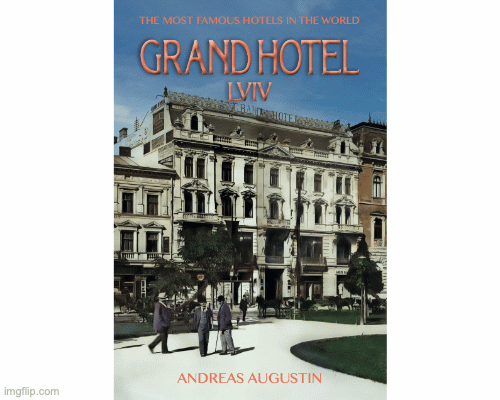
"Once again, Andreas Augustin spins a tale of hospitality history. This time, he ventures east into the realm of the former Austro-Hungarian Empire — into Galicia and its capital city, Lviv. He introduces us to literary masters of the past and sheds light on this celebrated city, now a tourist hotspot.
Research was undertaken during Russian attacks on Ukraine and Lviv. The author recalls: 'I was not amused, but ironically, I never felt unsafe! Maybe it helps to have a luxurious spa-swimming pool as an air-raid shelter, although I'd rather prefer the glass-walled penthouse room on top of the hotel to enjoy the view!'"
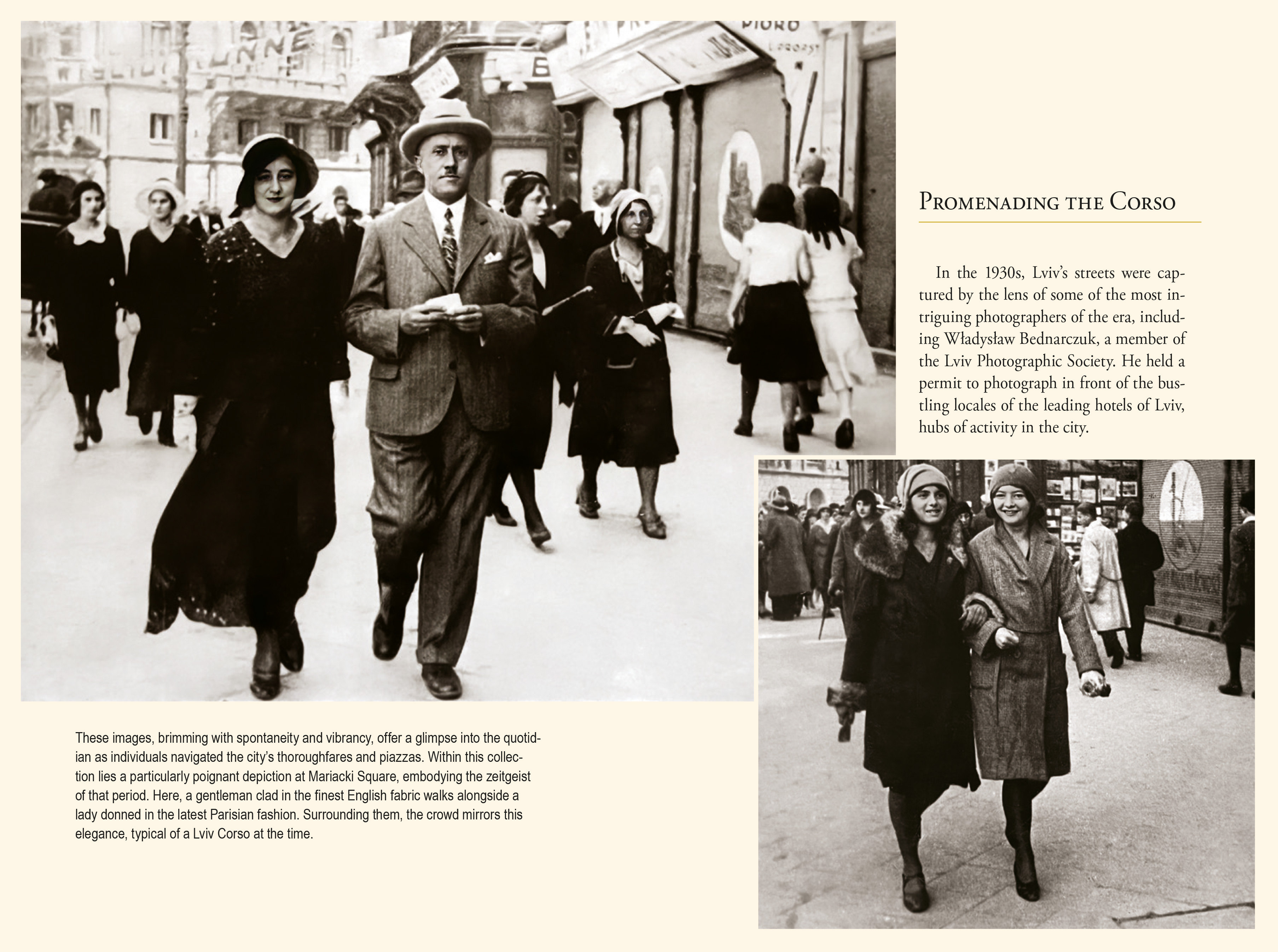 Lemberg is perhaps the most inviting and historic of all Ukrainian cities. To have a luxurious (by all measures!) Grand Hotel as a residence helps. Exquisite food and highest standards of accommodation included.
Lemberg is perhaps the most inviting and historic of all Ukrainian cities. To have a luxurious (by all measures!) Grand Hotel as a residence helps. Exquisite food and highest standards of accommodation included.
Western-influenced from its time as the capital of Galicia in the Austro-Hungarian Monarchy, the city still offers a blend of cultures as it lies at the watershed between Eastern and Western Europe. The Lviv Opera House, just a stone's throw away from the Grand Hotel, is a magnificent building from the monarchy, while the charming arrangement of squares and narrow streets dates back centuries.
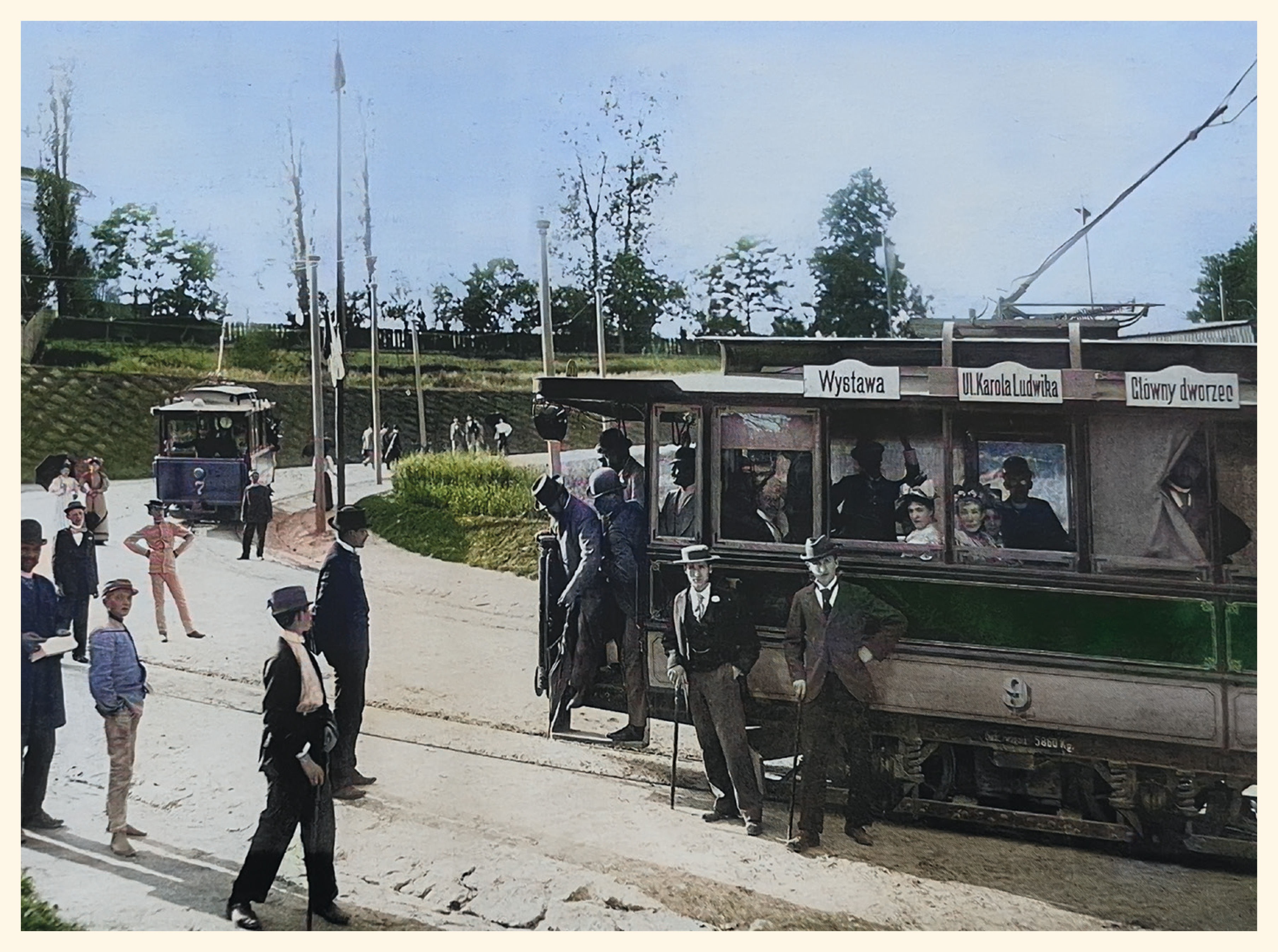
The Grand Hotel, opened in the year of the "Great Exhibition of 1894" when Emperor Franz Joseph visited the city, is today considered the best hotel in Ukraine. Elegantly and tastefully renovated, it retains the charm of the monarchy and operates with contemporary technology at the touch of a button. The book perfectly captures the atmosphere that awaits us here.
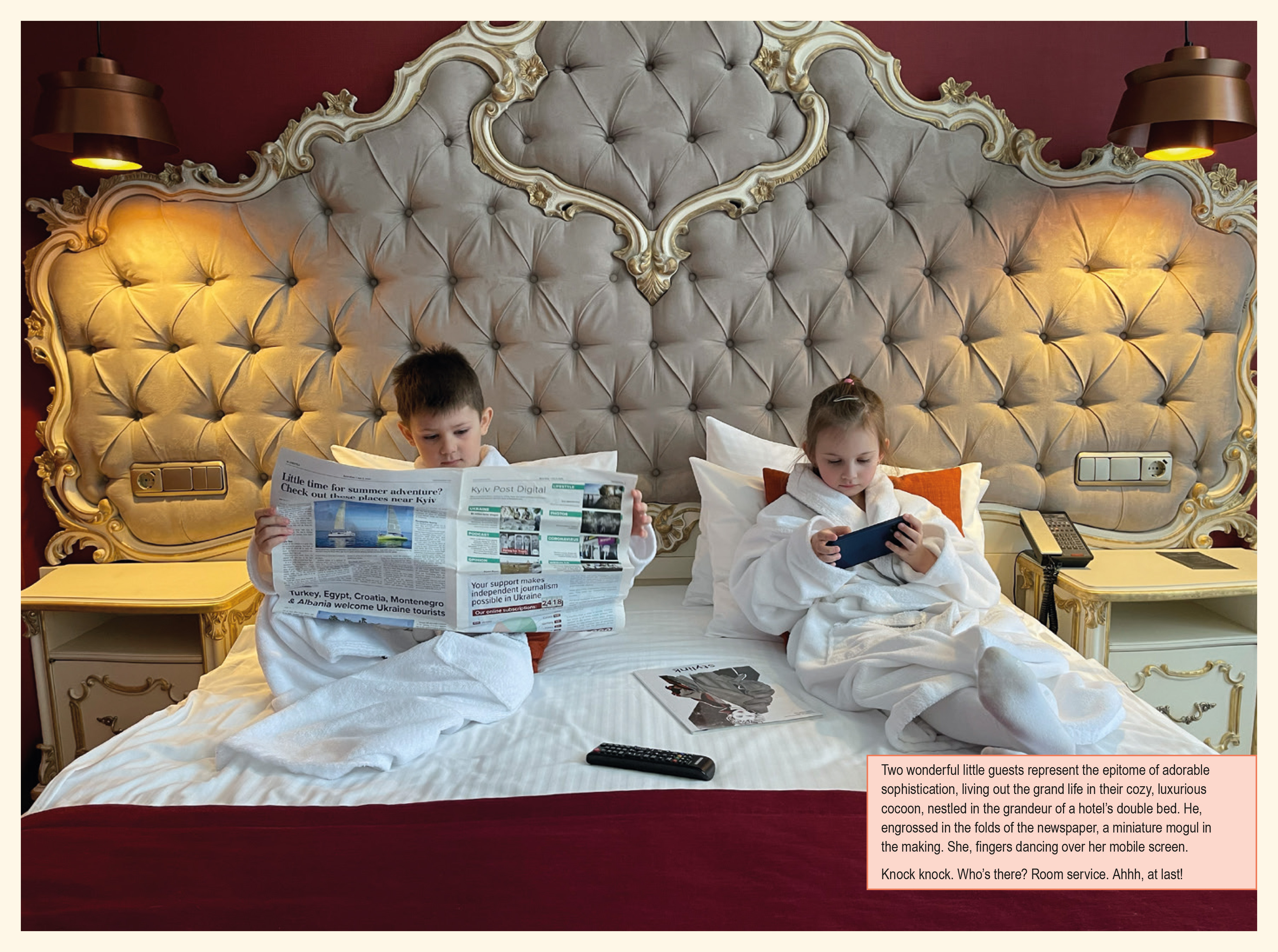 It is a family hotel, with a fine restaurant.
It is a family hotel, with a fine restaurant.
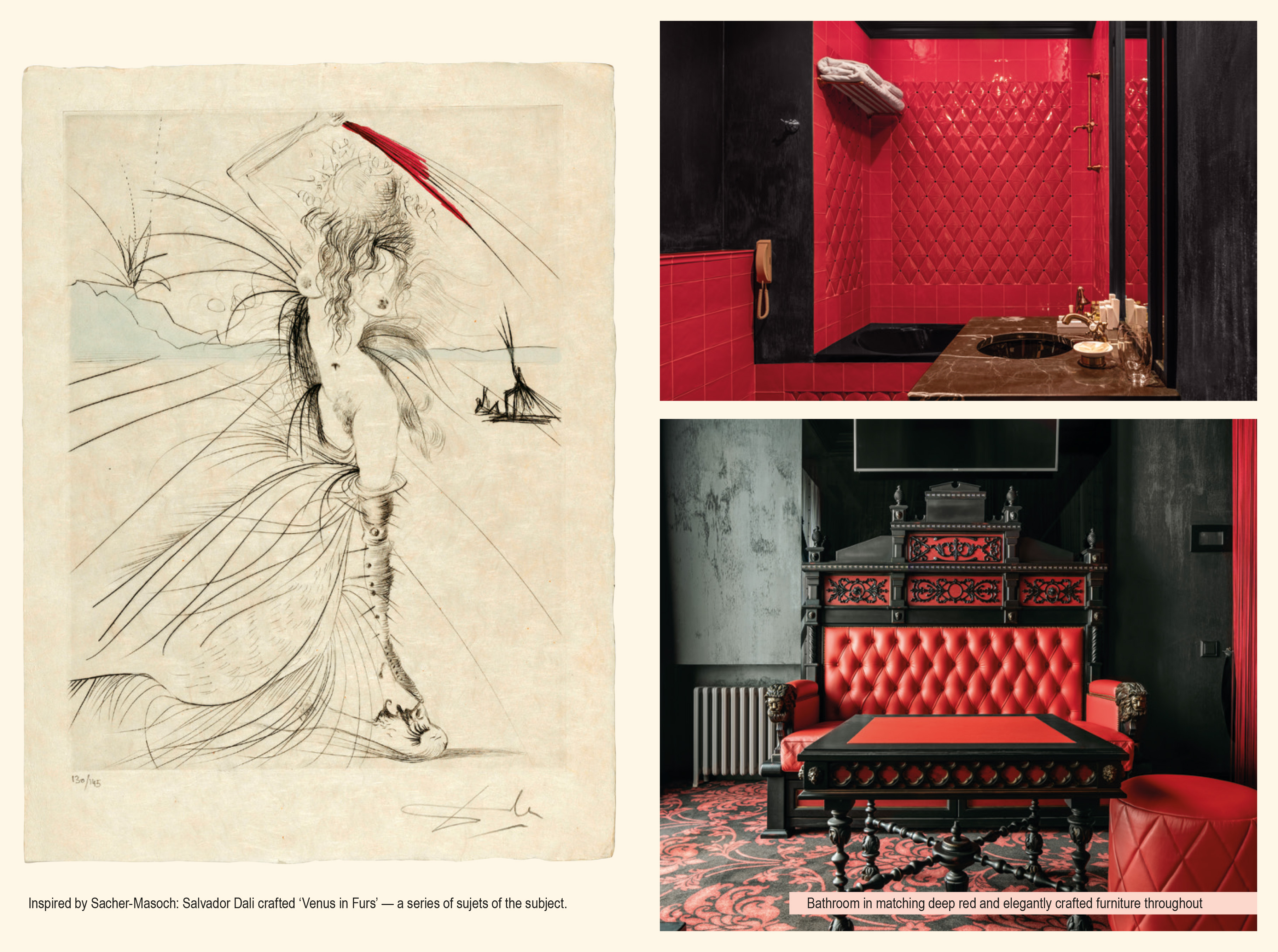
But it also has its suprising sides: the secret of the famous author Sacher Masoch (who was born in this building) is well-guarded in the hotel's Sado-Maso Suite. Who dares to take the first step into the mysteries of the night?
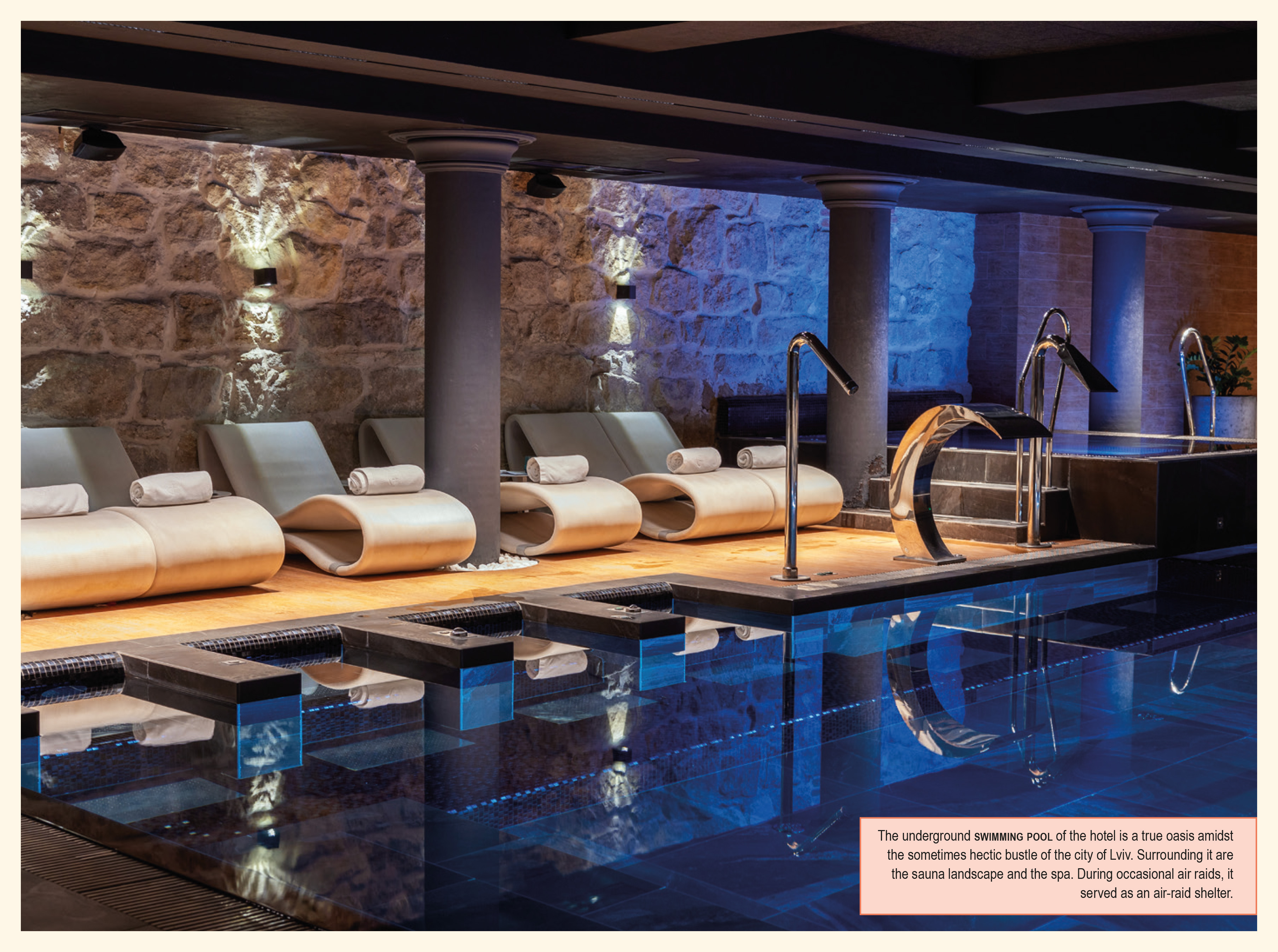
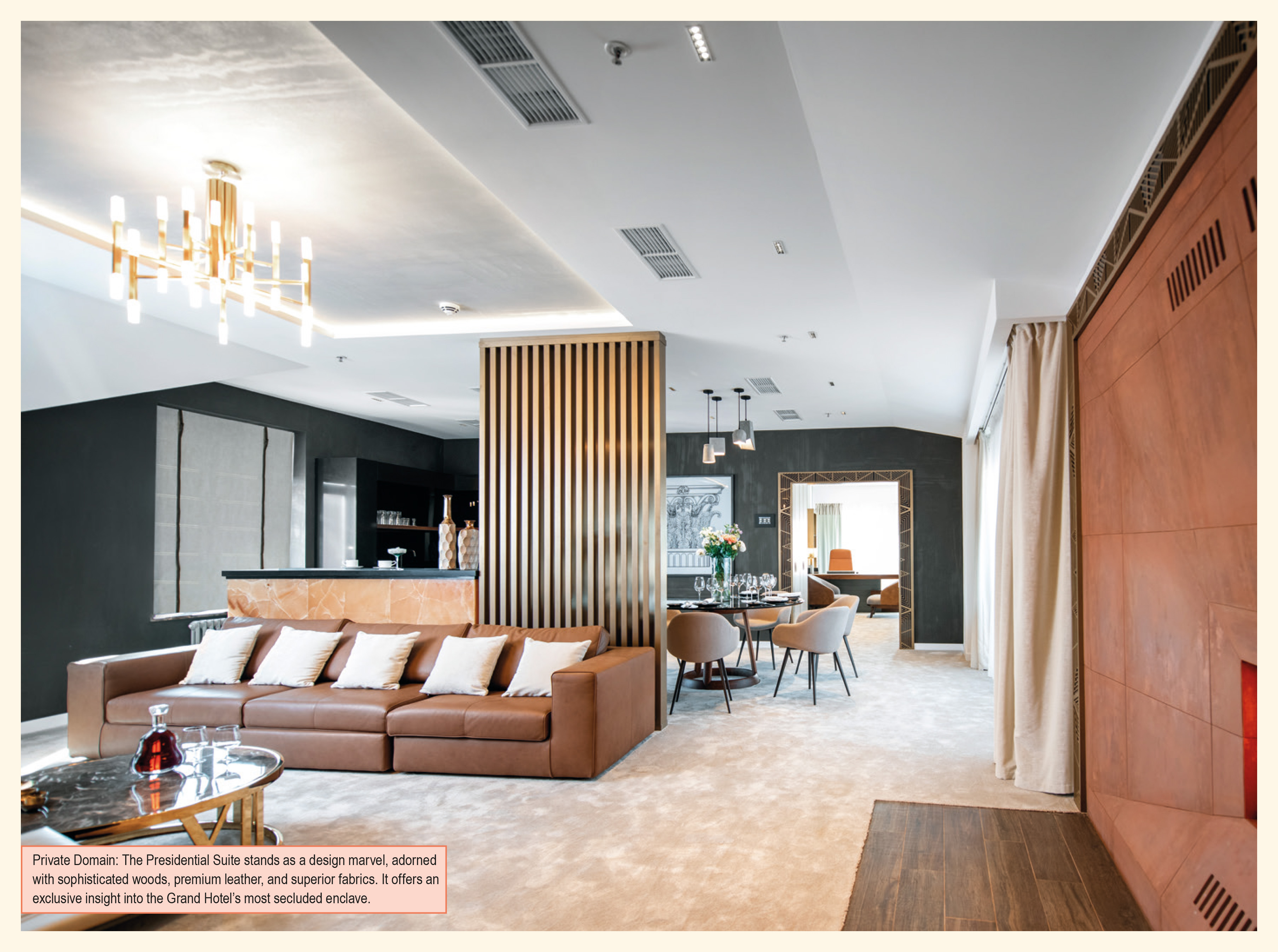
Lemberg, a city steeped in timeless allure from bygone days, serves as a bridge between worlds. It elegantly embodies the fusion of Western and Eastern European influences, transcending traditional geographical boundaries. Cradled tenderly yet contested fiercely, it once pulsed as the heart of the Kingdom of Galicia. Today it is the intellectual hub of the Western Ukraine.
Here, in this city, lies the Grand Hotel Lviv, a distinguished landmark on Ludwigstrasse, embodying a steadfast presence amidst the boulevard’s perpetual flux. Within the hotel’s majestic embrace unfolds an establishment of profound democracy, where both the celebrated and ordinary guests share esteemed standing.
When our mind wanders freely back in time, in the lobby of the hotel, one could envisage Joseph Roth, the celebrated Brody-born author, engrossed in his newspapers, jotting down observations and anecdotes from his post-World War I visit to the city.
Still today, you find them all, from sporting legends such as Andrii Shevchenko, Oleksander Shovkovskyi and Oleksander Usyk to cultural luminaries like American jazz virtuoso Kamasi Washington, Eurovision champions Jamala and the Kalush Orchestra, and the exuberant Andrii Danylko, better known as Verka Serduchka. German actor August Diehl arrived, so did Kiss of a Rose musician Seal.
The allure of the Grand Hotel Lviv is amplified by the presence of eminent figures such as Bridget Ann Brink, the US Ambassador to Ukraine, Egils Levits, President of Latvia, and Petro Poroshenko, Ukraine’s fifth President, who mingle on equal terms with all visitors.
Celebrities like Paris Hilton and bands such as Boney M and Mr. President appear and disappear – like flashlights in the dark. More enduring: Vitali Klitschko who embodies the fusion of athletic and political might. Peter Gelb of the New York Metropolitan Opera House and Canadian conductor Keri-Lynn Wilson, drawn by its closeness to the Opera House, further elevate the Grand Hotel Lviv’s standing as a nexus of cultural and intellectual exchange.
Here, the illustrious and the unassuming, the celebrated and the everyday guest, enhance every corner with a fusion of cultures, ideas, and dialogues.
Such inclusivity always ensures that a grand hotel is not simply a place of stay but a dynamic, living tableau of humanity, embracing all with a democratic spirit.
While this book does not purport to tell the exhaustive history of the establishment, it presents a collection of remarkable events, serving more as a collection of spotlights than a comprehensive illumination. It offers snapshots across epochs, at times amusing, at times sombre, occasionally of historical import, and at others simply an anecdote from old Galicia. A repository of tales, indeed. After all, this city and its surrounding is the place where so eminent and famous storytellers and celebrated literati came from.

